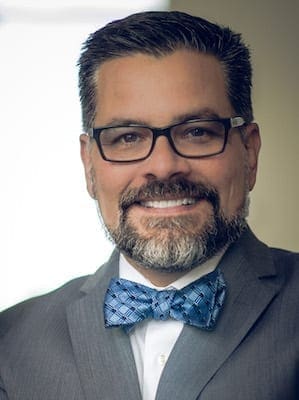Nelson Henderson fought in the trenches of the Great War in Europe and then moved to the Swan River Valley in Manitoba to start a farm.
He is most well-known for these wise words he shared with his children, “The true meaning of life is to plant trees under whose shade you do not expect to sit.”
The next generation of Christians needs the current generation to plant some trees.
Another summer brings denominational meetings around the world. Over the next month, I will be attending meetings of the Cooperative Baptist Fellowship, American Baptist Churches U.S.A. and the Baptist World Alliance.
Each organization is unique and significant, but they share the common mission of living out the gospel.
As I listen and learn how these organizations live out their purposes, I have noticed some familiar themes emerge over the last few years. They value community, worship, education, formation, justice and mission.
These values need to be further cultivated for the emerging generation, but a troubling trend has the potential to hinder future growth.
Following the reality that the next generation will be the first to live below the standards of their parents and grandparents, denominational organizations are facing the same dilemma.
Shrinking resources and dwindling loyalty to institutions have caused denominational entities to settle into a mode of organizational survival.
When the emphasis is placed upon survival, the potential for spiritual and missional growth is more difficult to foster and cultivate.
Budget deficits and shrinking staffs do not create a healthy environment to entertain creative vision and bold action.
However, there may be another trend emerging that could change everything.
Institutions are evolving into spiritual incubators giving birth to new ecosystems. Planted in soils of institutional stability and identity, these new ecosystems will feed on the rich nutrients of the past with the hope of growing something new for the future.
For these incubators to work, current denominational leaders will need to let go of past structures and embrace the future.
Denominations must be willing to step away from their survival existences and step into a field ready to be cultivated.
As a resurrected community, we must embrace the death of the old as a natural process and the cultivating of new life as an eternal hope.
The Apostle Paul reminded us that with death comes new life (Romans 6:4). For this new life, Paul encourages us to care for the new garden: “I planted, Apollos watered, but God gave the increase” (1 Corinthians 3:6).
If we obey this challenge, we can cultivate future spiritual ecosystems from the incubator of history.
At least six distinct ecosystems are emerging from the incubator of creativity and faith.
1. Community ecosystems will be essential for relational collegiality and dynamic interdependence.
Diverse relationships will be the greatest resource for the future. In an ever-growing culture of isolationism and echo chambers, people are searching for meaningful and authentic relationships. They are even seeking out people who differ from them theologically and politically, preferring personal authenticity and diverse conversation over tribalism.
2. Worship ecosystems will draw from the historic liturgies of the church to merge with contemporary expressions.
Instead of compartmentalizing forms of worship by musical styles, the new worship ecosystem will permit imaginative and thought-provoking disciples to create and worship freely. These new expressions will pull from historical traditions and meld them into modern modes that provide meaningful and moving worship.
3. Educational ecosystems will use the best scholastic methodologies combined with technological advancements.
Theological educators are committed to the reality that classroom learning environments offer educational opportunities, but technological advancements are expanding the classroom outside four walls. The most impactful classrooms of the future will be hybrids of the past that retain a high emphasis on theological reflection.
4. Formational ecosystems empower individuals with cognitive information and innovative opportunities to employ that information through pragmatic engagement.
Both intellectual and practical mechanisms form the theological conscience and living faith of disciples. The emerging Christianity will be open to new ways of reading, interpreting and applying Scripture for faith and practice.
It will be rooted in traditional methodologies, but it will be filtered through a modern version of the Wesleyan Quadrilateral, which relies on Scripture, tradition, reason and experience to interpret and apply Scripture for life.
5. Justice ecosystems will foster an environment for disciples to vocalize and fight for social justice.
This will be much more than “justice warriors” or “do-gooders.” Pursuing justice in society will provide a basis for the creation of environments where advocates and beneficiaries will live together in a symbiotic, interdependent community.
In other words, an injustice upon my neighbor is an injustice upon me. Social justice will concentrate on societies where neighbors respect and accept each other because – not in spite – of their diversity.
6. Missional ecosystems will develop a healthy balance between ministry and evangelism.
The next generation of missional engagement will embody the hope of the transformative gospel through passionate empowerment. Merging missions with social justice will provide an earthly hope with eternal consequences.
People will experience love through human interaction and divine connections. Building from the adage “Christians are the hands and feet of Christ,” missional ecosystems will exist to bring a missional harmony to living in a community.
As I travel across the world to attend these meetings over the next month, I am excited to hear from each organization as they seek to be the presence of Christ.
Each has gone through or will go through a transition in leadership, which is both frightening and exciting. Each has unique gifts and ministries to offer in this effort to build spiritual ecosystems.
In their own unique and excellent way, they are embodying Henderson’s adage: planting trees under which they will never sit, but from which future generations will reap the benefits for years to come.


